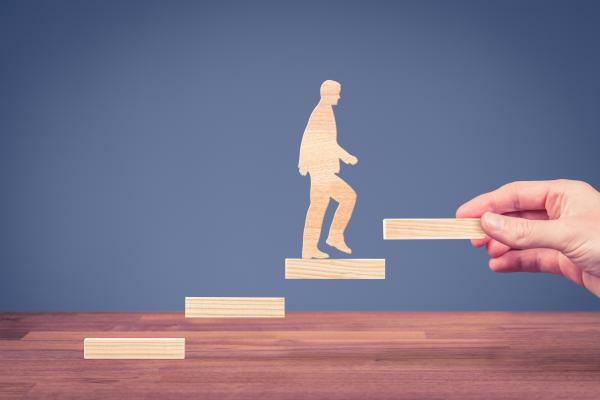
The sleep paralysis it's a Sleep disorder in which the person who suffers it feels that he is conscious but that he is unable to move his body or speak, although he can perceive what is happening around him. This situation generates a lot of anguish, terror and despair in the affected person, it usually occurs at the moment of beginning to sleep or waking up and has an average duration of 1-3 minutes. It has been pointed out that around 50-60% of the population has suffered an episode of this type in their life and, in general, it is associated with high levels of stress, anxiety and poor sleep habits, although it can also be a consequence of physical or mental illnesses of greater gravity. Before frequent episodes of sleep paralysis, it is advisable to consult with the doctor to find out the exact cause and initiate the appropriate treatment.
In the following Psychology-Online article, we will explain in detail the causes, consequences, symptoms and treatment of sleep paralysis.
Index
- Sleep paralysis: causes
- Types of sleep paralysis
- Symptoms of sleep paralysis
- Consequences of sleep paralysis
- How to avoid sleep paralysis - treatment and tips
Sleep paralysis: causes.
Sleep paralysis occurs as a consequence of a lack of coordination between some areas of the brain and that part of the nervous system that is responsible for giving orders to the voluntary muscles of the Body. While we sleep, we go through different stages of sleep and the stage in which sleep occurs, called REM, is where sleep is created. muscle atony, which means that the activity of our voluntary muscles is suppressed during sleep. Once we go to another phase of sleep or wake up, this muscular atony comes to an end, however, on some occasions it is possible the person wakes up during REM and the muscle atony does not come to an end, causing sleep paralysis leading to that inability to move voluntarily even though the person has regained consciousness. The person experiencing sleep paralysis enters a state of consciousness between sleep and wakefulness and is not able to carry out physical actions, but only to perceive what happens to his around.
Although the causes of sleep paralysis, it has been pointed out that this sleep disorder could be associated with:
- Not sleeping long enough.
- Irregular sleeping pattern, for example due to work shifts or jet lag.
- Narcolepsy
- Sleep apnea.
- Being exposed to excessive stress.
- Anxiety disorder.
- Panic attacks.
- Depression.
- Bipolar disorder.
- Post-traumatic stress disorder.
- Having a family history of sleep paralysis.

Types of sleep paralysis.
Based on the causes of sleep paralysis, we can distinguish between the following types:
- Isolated sleep paralysis: This is the name given to paralysis in patients who had not previously suffered from this disorder. In this case, it is usually associated with high levels of stress and anxiety and, in general, occurs temporarily, but eventually disappears or never occurs again. It can also be the consequence of not resting for adequate time or doing it in an irregular and fragmented way.
- Family sleep paralysis: this type of sleep paralysis is very rare and rare. It occurs in all members of the family without being related to other types of pathologies.
- Sleep paralysis related to other diseases: there are some diseases, such as narcolepsy, that can lead to sleep paralysis.
Symptoms of Sleep Paralysis.
Generally, sleep paralysis occurs at the onset of sleep (hypnagogic state) or upon awakening (hypnipopic state) and usually has a short duration, which is usually less than 1 minute and not more than 3 minutes. However, it should be noted that the duration varies depending on each person.
During the time that this episode lasts, the affected person wakes up, is in a state of consciousness between sleep and wakefulness and cannot make any voluntary movement, which generates great anguish and anxiety. He does have the ability to perceive what is happening around him at that moment, but he is not able to move, do any physical action or request help. Paralysis, of course, does not affect involuntary movements like breathing or heartbeat, but rather those muscles that we move voluntarily.
Let's see, next, what they are the main symptoms of sleep paralysis that can be presented:
- Difficulty breathing normally, feeling of suffocation or pressure in the chest.
- Ability to move the eyes, some people can open them and others not.
- Fear or panic
- Visual hallucinations: there are people who say they perceive or see someone or something in the room although they cannot recognize it. Some claim to feel that this presence wants to harm them.
- Auditory hallucinations: different intense sounds can be perceived such as hissing, buzzing, knocking, bells, screeches, hisses, sirens, breaking glass, music, footsteps, etc.
- Kinesthetic hallucinations: feeling of falling out of bed, floating, vibrations going through the body, tingling.
- Anxiety and anguish.

Consequences of sleep paralysis.
Some consequences of sleep paralysis in people who experience it are:
- Much terror, anguish and despair when discovering that he cannot move his body.
- Insomnia and fear of falling asleep due to the fact that you may experience an episode of sleep paralysis again.
- Anxiety.
- Feeling very tired and exhausted during the day.
In the case of suffering these consequences and that the episodes of sleep paralysis are frequent, it is advisable consult with the doctor to receive treatment if necessary.
How to avoid sleep paralysis - treatment and tips.
In general, the symptoms of sleep paralysis disappear spontaneously without having to perform a specific treatment, however, as we have already commented, it is important to see a doctor in the event that the episodes are regular or frequent and if they are accompanied by symptoms other than those already mentioned. The specialist will analyze the patient's medical history and the symptoms that occur, it is possible that he or she sleep diary for a few weeks to analyze sleep habits and, in cases that require it, you can request to perform a sleep study test called polysomnography. With this test, brain activity and cardio-respiratory rhythm are recorded and controlled during sleep.
If sleep paralysis is the result of a physical or mental illness, psychological therapy and a pharmacological treatment, since by treating and improving the underlying disorder or pathology, the episodes are likely to be reduced or disappear. Antidepressant medications can be prescribed in more serious cases, as these types of drugs act by modifying the concentrations of some neurotransmitters in the brain that are responsible for regulating the REM phase of sleep, which makes this stage shorter and not as deep.
Among the main advice that can be carried out on a day-to-day basis to avoid sleep paralysis, are the following:
- Maintain good sleep hygiene: set a fixed time to go to sleep, try to sleep for 7 to 8 hours a day, create a suitable sleeping environment that is calm, relaxed and without noise.
- Avoid doing stimulating activities before going to sleep, such as watching television or using devices such as mobile phones, tablets, computers, etc.
- Avoid consuming stimulant or caffeinated drinks from the afternoon.
- Exercising regularly, but avoiding doing it in the last hours of the day.
- Reduce stress daily: for this, you can learn relaxation techniques, do yoga, Pilates, meditation, etc.
- Take a hot bath or a relaxing infusion before going to sleep.

This article is merely informative, in Psychology-Online we do not have the power to make a diagnosis or recommend a treatment. We invite you to go to a psychologist to treat your particular case.
If you want to read more articles similar to Sleep paralysis: causes, consequences, symptoms and treatment, we recommend that you enter our category of Clinical psychology.
Sleep paralysis: causes, consequences, symptoms and treatment


